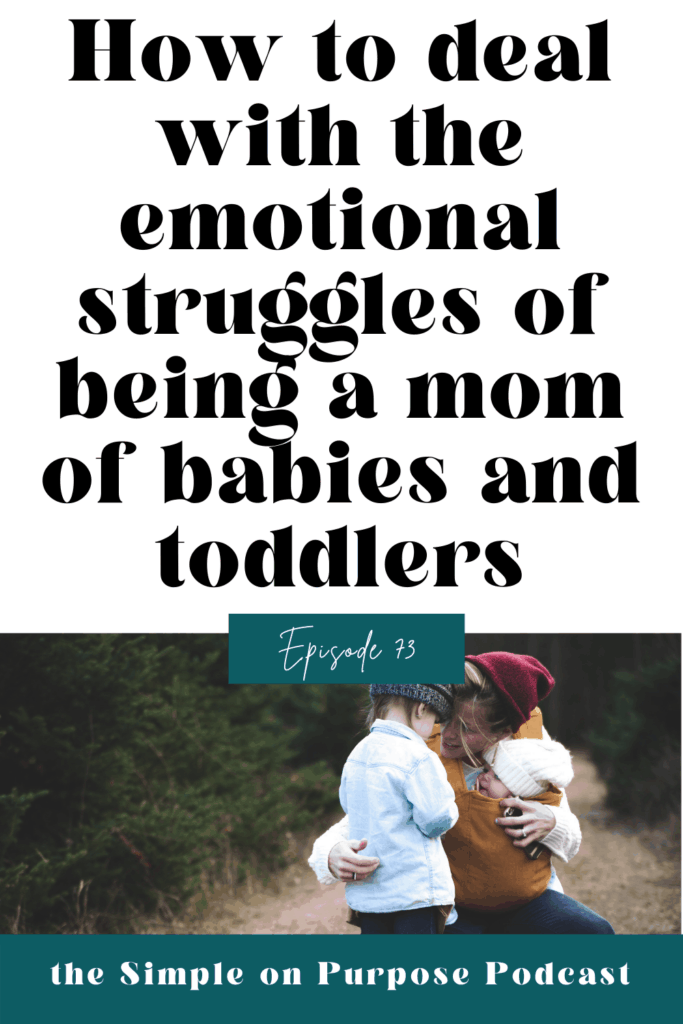Emotional struggles of new parents can often cast a shadow over the joy of welcoming a new baby. As they navigate this transformative phase, many new parents find themselves grappling with feelings of inadequacy and the weight of postpartum depression. The relentless fatigue, stemming from sleep deprivation, can intensify these emotional challenges, leaving parents feeling overwhelmed and anxious. With the added stress of adjusting to a new lifestyle, it’s common for new parents to feel isolated and disconnected. By acknowledging these struggles, new parents can begin to seek the support they need to embrace their new journey with confidence.
The challenges that arrive with the arrival of an infant are profound and multifaceted. New caregivers frequently deal with a myriad of emotional hurdles, including anxiety, guilt, and the exhausting effects of sleep deprivation. This transition often leads to a sense of lost identity and increased strain within relationships, making the parenting experience even more complex. As these new guardians confront their fears of bonding and the pressure to excel in their roles, they may feel overwhelmed by the sheer magnitude of their responsibilities. Understanding and addressing these emotional challenges can empower new parents to navigate this tumultuous yet rewarding time.
Understanding the Emotional Struggles of New Parents
Becoming a parent unleashes a plethora of emotions, both positive and negative. One of the key emotional struggles that new parents face is the overwhelming sense of inadequacy. It is common for new moms and dads to question their parenting skills, often comparing themselves to others and feeling like they fall short. This pressure to appear as the perfect parent can lead to significant self-doubt and anxiety, creating a cycle of negative feelings that may accumulate over time.
Recognizing these feelings of inadequacy is crucial, as they often stem from unrealistic expectations set by societal norms or personal beliefs. The challenge of parenting compounded by these expectations can trigger postpartum depression, a serious condition affecting many new parents. Understanding that it’s normal to feel overwhelmed can offer some comfort and encourage them to seek support.
Overcoming Postpartum Depression: A Journey
Postpartum depression (PPD) is a mental health struggle faced by many new parents, regardless of gender. The emotional turmoil associated with PPD includes feelings of sadness, anxiety, and exhaustion that can severely affect one’s ability to care for their newborn. It’s essential for new parents to acknowledge that they are not alone; many others share similar experiences, and reaching out for help can be an empowering first step toward healing.
Treatment options for postpartum depression are available and can make a significant difference. Whether it involves therapy, medication, or support groups, finding the right solution is vital. New parents should not be afraid to express their emotions, as talking about their feelings can foster a supportive environment and may even help decrease feelings of inadequacy or guilt.
Coping with Sleep Deprivation: Tips for New Parents
One of the most immediate challenges for new parents is sleep deprivation. The constant wake-ups and interrupted sleep cycles can lead to irritability, fatigue, and increased emotional strain. Parents find themselves grappling with a foggy mind, making daily responsibilities feel monumentally harder. This lack of rest often exacerbates existing emotional struggles, such as feelings of inadequacy and anxiety.
To manage sleep deprivation, new parents can explore strategies such as co-parenting responsibilities, sleep training for the baby, and nap schedules. It’s important to understand that taking care of oneself, including getting adequate rest whenever possible, is vital in managing parenting stress. Family support and sharing duties can empower parents to recharge, thus equipping them to face parenting challenges with renewed strength.
The Social Isolation Feelings of New Parents
Once welcomed into parenthood, many experience newfound feelings of isolation. The lifestyle changes that come with a newborn can make it challenging to maintain connections with friends and family. This disconnect can intensify feelings of loneliness and lead to increased risk of postpartum depression. It’s not unusual for new parents to feel as though their world has become smaller as they adapt to their new roles.
Combatting this isolation is critical. New parents should actively seek opportunities to engage with friends and join parenting groups where they can share their experiences. Encouraging open dialogues about the emotional struggles they are facing can foster community and support, reducing feelings of inadequacy and loneliness in the process.
Balancing Identity after Baby: A Common Struggle
Transitioning into a role as a dedicated parent often leads to a crisis of identity. Many new parents grapple with the feeling of losing their old selves, which can cause emotional distress. The realities of parenting, combined with societal expectations, can create overwhelming stress, making it difficult to reconcile their former identities with their new roles.
Navigating this adjustment period involves acceptance and patience. New parents should take time to reflect on their evolving identities, recognizing that it’s normal to feel different versus the pre-baby self. Engaging in self-care routines and carving out personal time can help restore a sense of self and ownership over their new roles, lifting the burden of guilt and inadequacy that they may feel.
Managing Relationship Strain with Parenthood
The experience of becoming a parent can significantly reshape the relationship dynamic between partners. New parents may find that the stresses of sleep deprivation, postpartum depression, and parenting responsibilities can lead to conflicts and misunderstandings. These strains can evoke feelings of inadequacy and fear of not fulfilling each other’s expectations, adding to emotional challenges during the initial transition.
To foster relationship health, it’s essential for partners to communicate openly about their feelings and share responsibilities. Regularly scheduling quality time together can help alleviate stresses and enable both partners to reconnect emotionally. By working together through the challenges, couples can build a stronger foundation while navigating the tumultuous yet rewarding journey of parenthood.
Confronting Parenting Stress and Anxiety
Parenting stress is a common experience, often intensified by the emotional struggles faced by new parents. The pressure of caring for a newborn, combined with the fear of the unknown and the responsibilities of daily life, can create a breeding ground for anxiety. Understandably, new parents may feel overwhelmed by the many decisions they need to make—everything from feeding schedules to baby care—leading to feelings of inadequacy.
Finding healthy coping mechanisms is vital. New parents should consider seeking professional guidance or support groups to alleviate overwhelming stress. Practicing mindfulness, engaging in physical activity, or simply sharing feelings with other parents can significantly reduce anxiety. By seeking balance and prioritizing self-care, parents can actively combat parenting stress and cultivate a more positive outlook.
Dealing with Guilt as a New Parent
Guilt is a recurring emotion among new parents, as they often battle the balancing act of self-care versus caring for their newborn. Many parents feel guilty for wanting personal time or for not meeting their self-imposed standards, igniting feelings of inadequacy and disappointment. This emotional struggle is amplified by the belief that any focus on self may detract from their child’s needs.
Recognizing that taking care of oneself is not selfish but essential is a critical step in managing guilt. New parents should reframe their thoughts by understanding that their well-being directly impacts their ability to care for their child. Joining support groups and discussing these feelings with other parents can help alleviate guilt and provide reassurance, creating a healthier mindset.
Navigating the Fear of Not Bonding with Your Newborn
New parents often experience a fear of not bonding with their newborn as they anticipated. This anxiety can stem from unrealistic societal expectations or personal insecurities about their parenting abilities. The fear that they might not connect with their child leads to heightened emotional stress, often resulting in feelings of inadequacy and contributing to postpartum depression.
It is critical for new parents to recognize that bonding can take time, and everyone’s journey is unique. Engaging in nurturing behaviors, such as skin-to-skin contact or spending quality time together, can help foster this bond. Open discussions about these feelings with partners or support groups can significantly decrease anxiety and allow for a more organic connection with the newborn.
Adjusting to Parenthood: Embracing the Journey
The transition into parenthood is an adjustment period filled with emotional struggles. As new routines take shape, parents might feel overwhelmed by the necessity to adapt to many new responsibilities. Learning to embrace this journey rather than resist it can lead to significant personal growth and emotional resilience.
New parents should acknowledge that it’s okay to struggle and experience various emotions—it’s all part of the parenting process. Relying on support networks, whether friends, family, or healthcare professionals, can make a substantial difference in easing the emotional trials faced. Allowing space for vulnerability allows new parents to become more equipped to handle life’s ups and downs with grace.
Frequently Asked Questions
What are common emotional struggles of new parents, including postpartum depression?
New parents often face a variety of emotional struggles, including postpartum depression, which can manifest as extreme sadness and anxiety. Other challenges include feelings of inadequacy, sleep deprivation, isolation, and the fear of not bonding properly with their baby. These issues can compound, making early parenting a challenging experience.
How can feelings of inadequacy affect new parents?
Feelings of inadequacy are common among new parents, as they may worry about their parenting skills and whether they are doing things ‘right.’ This emotional burden can lead to increased stress and anxiety, particularly when coupled with the demands of caring for a newborn.
What role does sleep deprivation play in the emotional struggles of new parents?
Sleep deprivation significantly contributes to the emotional struggles of new parents. The lack of rest can lead to irritability, heightened anxiety, and feelings of being overwhelmed, making it more difficult to cope with the challenges of parenthood.
Why do new parents experience feelings of isolation?
Many new parents experience feelings of isolation due to the significant lifestyle changes that come with caring for an infant. They may find it difficult to engage in social activities or maintain relationships, leading to a sense of disconnect from their support networks.
How does the transition to parenthood lead to a loss of identity?
The transition to parenthood often leads to a loss of identity for many individuals. New parents may struggle to reconcile their previous self with their new roles, which can create emotional struggles as they adapt to being caregivers while longing for their old lifestyle.
How can relationship strain affect new parents emotionally?
Relationship strain is common among new parents as they navigate the challenges of parenthood. Increased stress and the need for adjustments can lead to conflicts, which add to the overall emotional struggles during this transition.
What emotional impacts does the fear of the unknown have on new parents?
The fear of the unknown can significantly impact new parents, leading to increased anxiety about caring for their newborn. This fear can result in heightened emotional struggles, including stress and feelings of inadequacy.
What kinds of guilt do new parents commonly experience?
New parents often face guilt regarding the balance of time spent between caring for their baby and self-care. This guilt can create emotional turmoil, as new parents feel they should prioritize their child over their personal well-being.
Why do new parents fear not bonding with their baby?
Fear of not bonding with their baby is a common emotional struggle for new parents. This anxiety can stem from societal expectations and personal insecurities, leading to additional stress during the early stages of parenting.
What adjustment period do new parents face, and how does it affect their emotional health?
The adjustment period for new parents can be overwhelming, as they navigate significant changes in their lives. This transition often leads to emotional struggles, such as anxiety and feelings of inadequacy, as they learn to balance their new responsibilities.
| Key Emotional Struggles of New Parents | |
|---|---|
| Feelings of Inadequacy | Anxiety about whether they are parenting correctly, often leading to self-doubt. |
| Postpartum Depression | Extreme sadness and anxiety experienced by both mothers and fathers after childbirth. |
| Sleep Deprivation | Fatigue from lack of sleep can lead to irritability and emotional overwhelm. |
| Isolation | Loneliness can occur when social activities decrease after having a baby. |
| Loss of Identity | New parents may struggle to balance their previous and new identities. |
| Relationship Strain | Changing dynamics can lead to conflicts and stress between partners. |
| Fear of the Unknown | Anxieties about caring for a newborn can be overwhelming. |
| Handling Stress | Everyday stresses amplify with the added responsibilities of a new baby. |
| Guilt | New parents may feel guilty about taking time for themselves. |
| Fear of Not Bonding | Worry about not forming a strong bond with the baby. |
| Jealousy | Feeling envious of those without children who enjoy more freedom. |
| Adjustment Period | Transitioning into parenthood involves a significant emotional adjustment. |
Summary
Emotional struggles of new parents can be profound and complex. The transition to parenthood, filled with both joy and challenges, often brings a range of emotional trials. From feelings of inadequacy and postpartum depression to sleep deprivation and isolation, new parents face a myriad of changes that can affect their emotional well-being. Acknowledging these struggles is crucial for new parents, as they navigate the responsibilities of caring for their child while also taking care of their own mental health. It’s essential to seek support and remember that these feelings are common, ultimately leading to a more balanced and fulfilling parenting journey.
Unlock the full potential of your WordPress site with Autowp, the ultimate AI content generator and AI content creator plugin that revolutionizes how you produce content. Streamline your writing process as this powerful tool harnesses advanced algorithms to create engaging, relevant articles that resonate with your audience in no time. Whether you need blog posts, product descriptions, or social media content, Autowp is here to enhance your creative workflow effortlessly. Experience the future of content creation with Autowp today! To remove this promotional paragraph, upgrade to Autowp Premium membership.



